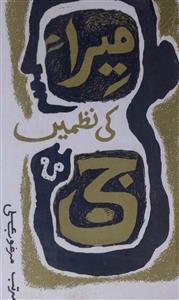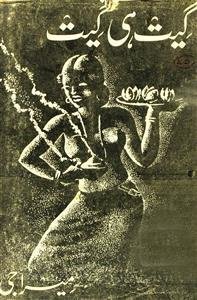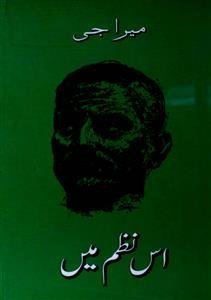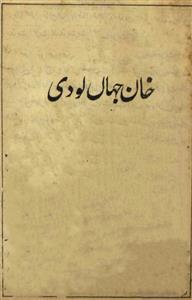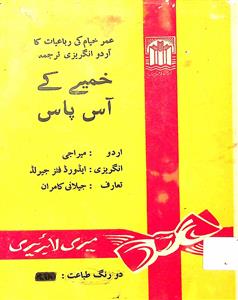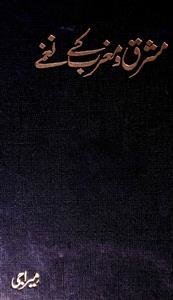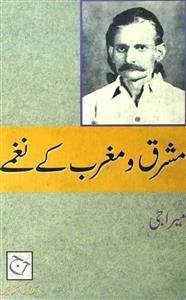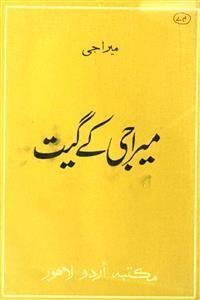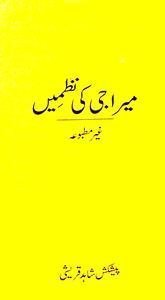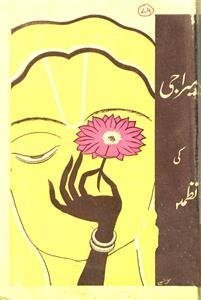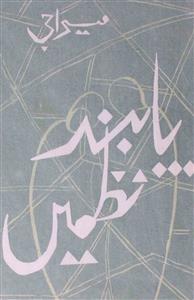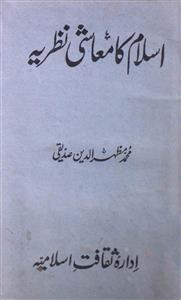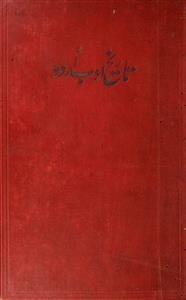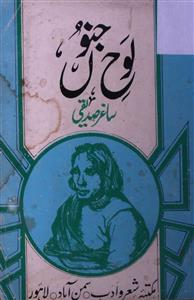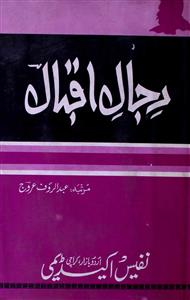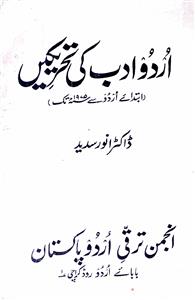 For any query/comment related to this ebook, please contact us at haidar.ali@rekhta.org
For any query/comment related to this ebook, please contact us at haidar.ali@rekhta.org
About The Book
اردو نظم کے ارتقا میں میراجی کا نام اہم ہے۔ وہ اپنی نظموں کے لیے ایک خاص فضا قائم کرتے ہیں، جس سے ان کا ہندوستانی تہذیب اور اس دھرتی سے لگاؤ سامنے آتا ہے۔ میراجی نے اردو نظم کو ہیئت اور طرز دونوں کے اعتبار سے یورپی نظموں کے بلندر معیار سے اہم آہنگ کرنے کی شعوری کوشش کی۔ ان کا مطالعہ خاصا وسیع تھا۔ انگریزی، فرانسیسی، امریکی، جرمنی اور روسی زبانوں کی شاعری کا مطالعہ کیا تھا۔ ان زبانوں کی کئی نمائندہ نظموں کا منظوم ترجمہ بھی کیا۔ میراجی کی نظموں میں جنس ایک اہم موضوع رہا ہے۔ انہوں نے اپنی نظموں میں جنسی موضوع کو بھر پور انداز میں برتا ہے، زیر نظر کتاب میں جو نظمیں شامل ہیں ان میں ایسی نظمیں بھی ہیں جن میں جنسی الجھن کا موضوع پست سطح سے بلند ہو کر اس دور کی اجتماعی زندگی میں ایک اہم پہلو کا مظہر ہو جا تاہے، اور بعض ایسی نظمیں ہیں جن میں دوری کی اذیت، شخصی محرومی، غم انتظار، ذہنی تلاش اورذوق تپش کا بیان ملتاہے۔ ان نظموں کو مرغوب علی نے مرتب کیا ہے، کتاب میں شامل ان کے مضمون "میراجی افسانہ اور حقیقت" میں میراجی اور ان کے فن کے تعلق سے کئی اہم خلاصے ہوئے ہیں۔ ایک مضمون میراجی کا بھی شامل ہے جس سے میراجی کے فن اور شخصیت پر بہتر روشنی پڑتی ہے۔
About The Author
Meeraji is considered among the poets who brought forward and advanced the style of symbol-ridden poetry in Urdu. N.M. Rashid opined that Meeraji wasn’t just a poet, but a phenomenon.
Meeraji’s real name was Muhammad Sanaullah Dar. He was born in Lahore on May 25, 1912. He came from Kashmir, where his ancestors had come just a few generations ago and settled in Gujranwala. His father, Munshi Mahtabuddin, used to work as a railway contractor. Meeraji was born of his second wife, Sardar Begum, who was very beautiful and quite younger to her husband, who imposed himself upon her. Meeraji loved her mother very much and understood that she was extremely oppressed. Meeraji had no interest in academic studies, he had a penchant for literature and scholarly books.
Part of Meeraji’s childhood and youth was spent in the Indian state of Gujarat. After failing in matriculation, Meeraji, against the wishes of his father, got a job in Maulana Salahuddin's magazine "Adni Dunya" for Rs. 30 per month. From here, his literary journey began. While working in "Adabi Dunya", Meera Ji wrote articles and translated the works of many Western and Eastern poets to inform the Urdu world about their lives and their literature, and which was later compiled as ‘Mashriq aur Maghrib ke Naghme.’ During this period, his naturalistic creations began to be published in "Adabi Dunya" and other magazines and his critical articles captivated the readers. During his school days in Lahore, he fell in love with a Bengali girl, Meera Sen. It was such a severe infatuation that Sanaullah Dar changed his nickname from Sahari to Meeraji.
In 1945, Meera Ji reached Bombay to try his luck in films. After arriving in Bombay, he did not get any work for over 3 months. Later he went to Pune, where Akhtar-ul Iman was residing. He accommodated Meeraji with him with great affection. But even in Pune none of Meeraji’s job arrangements could be made, and he reluctantly returned to Bombay on 16th October 1947. After a few days, Akhtar-ul Iman also came to Bombay. He was issuing the magazine ‘Khayaal’, and entrusted the task of editorship to Meeraji; a task which fetched him Rs. 100 per month. By now, his health had deteriorated due to excessive drinking and irregular eating. He complained of diarrhea but did not abstain and did not seek treatment. When his condition changed, Akhtar-Ul Iman took him to his house but he did not abstain there either. When his condition worsened, he was admitted to a government hospital. The doctor said that such complications often occur in patients with syphilis. His last days were very painful. All his hair had turned white. He had swelling on his hands, feet and abdomen. Eventually, he passed away on November 3, 1949. At his funeral, there were only a handful of individuals; Akhtar-ul Iman, Mahender Nath, Madhusudan, Najam Naqvi, and Anand Bhushan. Despite many efforts, no Bombay newspaper published any news of his death.
The consolidated works of Meeraji include, 223 Nazms, 136 Geet, 17 Ghazals, 22 versified translations, and 5 parodies among others. In prose, he translated ‘Kuttanimuttam Kavyam’, the classical Sanskrit poetry of Damodar Gupt titled ‘Nigar-Khana’. Additionally, he also wrote pivotal articles of criticism.
Meeraji can be remembered as the founder of a new school of poetry. Man's conscious and subconscious states, which are the stimuli of his thoughts and actions, Meeraji tried to formulate new language, new symbols, new terms and new characters to express them. The Indian atmosphere in his poems is very clear and profound. As a result of Meeraji’s experiments in language and expression and the taste for poetry he sought to develop, his status is not that of a lost poet but that of an artist who laid the foundation of a poetic style in which there are possibilities for great poetry.
 For any query/comment related to this ebook, please contact us at haidar.ali@rekhta.org
For any query/comment related to this ebook, please contact us at haidar.ali@rekhta.org
